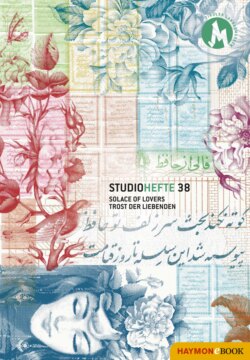Читать книгу Solace of Lovers. Trost der Liebenden - Helena Perena - Страница 7
COMMENTARY TO POLAK’S “THE AUSTRIAN TEACHERS IN PERSIA” Yashar Samimi Mofakham
ОглавлениеJakob Eduard Polak’s essays and lectures are without question among the most important material of the past century describing Iran from a Western point of view.
Polak’s arrival in Iran was concurrent with the dismissal and assassination of Naser al-Din Shah’s reformist prime minister, Amir Kabir, one of the most powerful Iranian politicians of the previous century. As he mentions in his texts, Polak reached Tehran a few days after this incident and encountered a city engulfed in sorrow and fear. The King and his court, who feared Amir Kabir’s unlimited power, first deposed him from his position and later killed him, replacing him with Mirza Aqa Khan Nuri, who was the opposite of Amir Kabir in terms of his policies, ideas and actions. The King, himself a reformer, had previously supported Amir Kabir’s policies and given him total control, but now he had selected a conservative prime minister whose only condition for joining the King in governance was that his life be spared. Iran was on the path to modernism, but during the incumbency of Mirza Aqa Khan Nouri, it turned into a weak, incapacitated country that could not maintain its frontiers and lost some regions to neighbouring countries, resulting in the formation of its current borders. Evidence of such shortcomings in leading and governing the country are very prominent in the text.
Polak’s profession gave him the opportunity to travel to different parts of the country and meet different segments of society during his stay in Iran. At the same time, because of his position in the King’s court, he became one of the King’s closest companions and was naturally regarded as a member of the ruling elite by many people, including the intellectuals who chose to remain silent after Amir Kabir’s assassination. It is therefore safe to assume that any information he obtained from different sources was probably edited selectively.
On the other hand, Polak and his team had come to Iran at Amir Kabir’s invitation for a particular reason: to help modernise Iran according to European frameworks. And although Iran needed these modern frameworks in order to interact with the modern world, it was a grave mistake to ignore the ancient systems it had developed throughout history, which were still functional.
The Qajar dynasty destroyed many things left behind by previous kings and built them anew, just so it could prove that it was the only dynasty that could save Iran and transport it into the modern future – something that has unfortunately happened over and over again throughout Iran’s history. Accordingly, the information provided to Polak and his team was organised and based on this agenda. Polak’s travelogues include many examples where the information given to him about the postal system, the state of the roads, medicine, army, education, etc. was either historically inaccurate or it was collected by the European team from an orientalist perspective.
Polak’s texts convey his deep love for the country in which he spent one decade of his life, but at the same time they also include certain historical inaccuracies. The beliefs, rituals and cultures of a people within a multi-ethnic country can seem strange even to its natives, let alone visitors from abroad. And while the description of these rites and rituals can bring cultures closer together, a description that carries the weight of judgment seems unjust.
Despite everything, the study of material such as this is important because it helps us understand things from an outsider’s perspective, including information and details that seem so obvious they have never been recorded and are only noticed and documented by an outsider. These documents also show us where we have failed to create a cultural dialogue and where we have had shortcomings in representing ourselves to the “other”, resulting in decade-long or even century-long misunderstandings throughout history.
